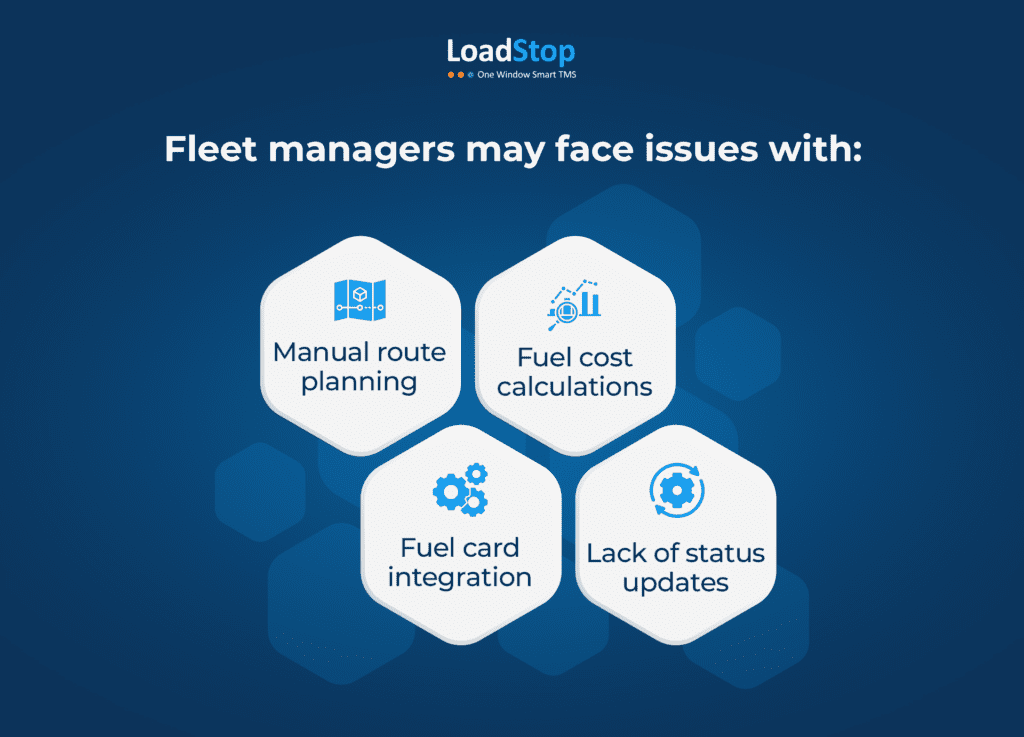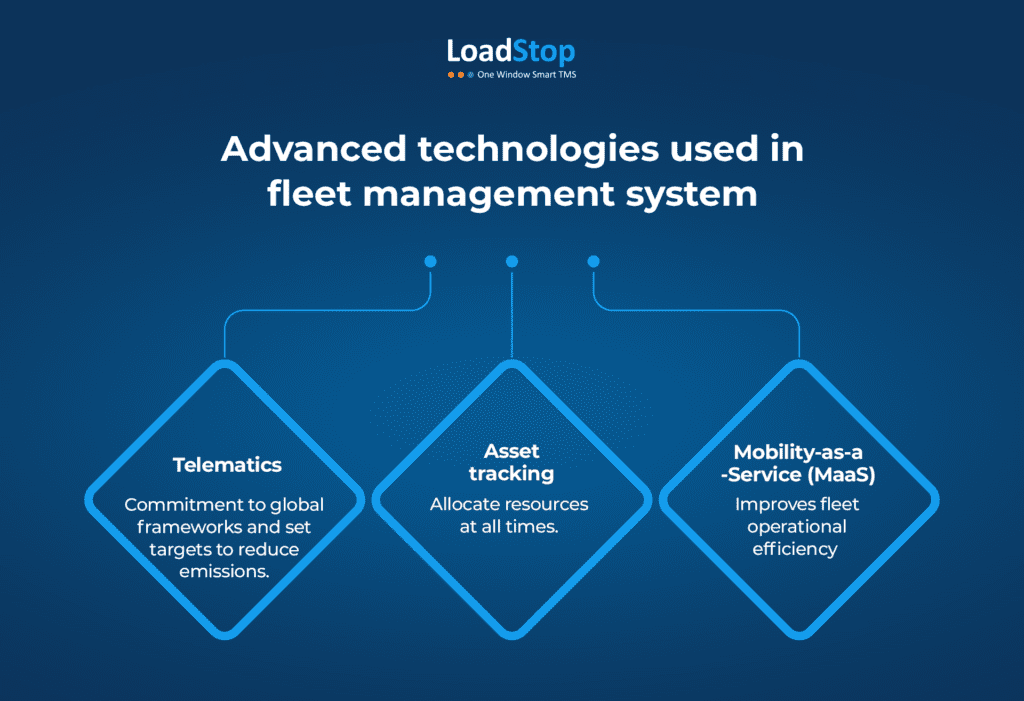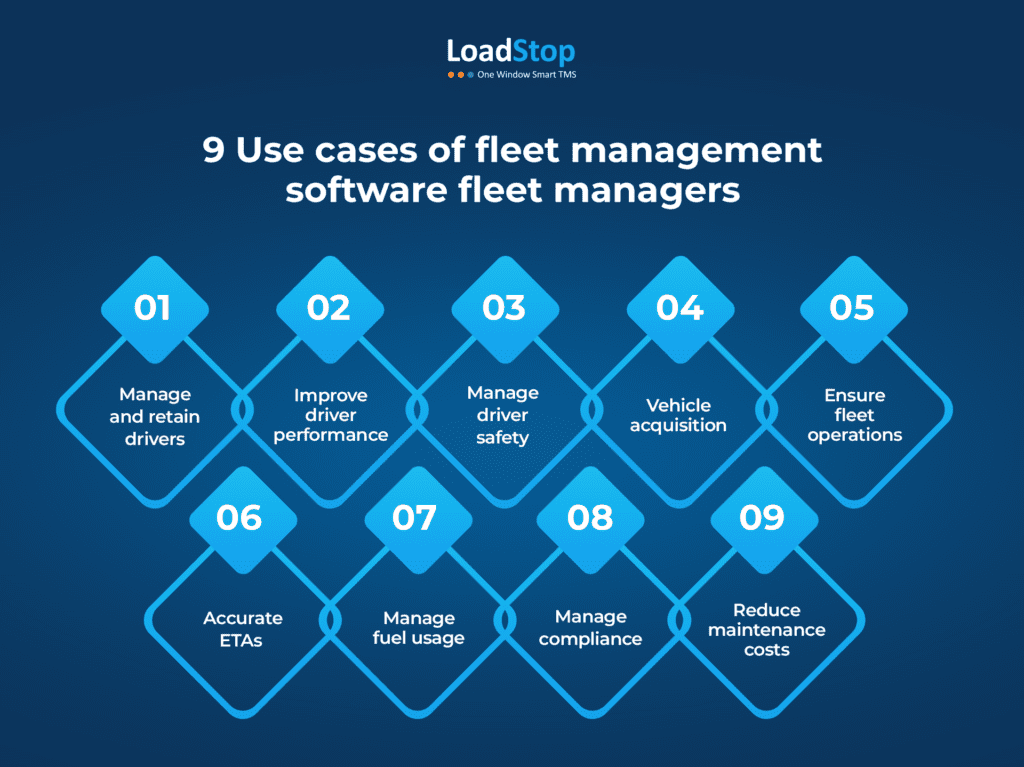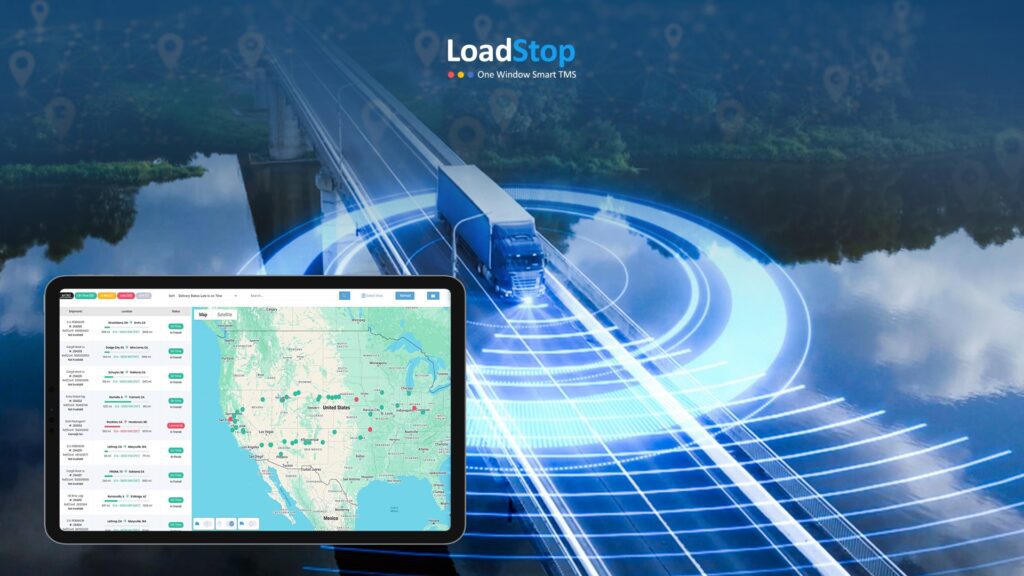Managing a fleet isn’t just about keeping vehicles on the road; it’s like trying to play chess on a board where the pieces are always moving—and some of them might be running low on fuel. If you’ve ever found yourself buried in spreadsheets, scrambling to track down drivers, or wondering why fuel costs are eating up your budget, you’re not alone. Fleet management is no small feat, and without the right tools, it can feel like you’re spinning your wheels. That’s why fleet management solution is the one power charger that can turn the game around for you.
From optimizing routes and reducing fuel consumption to managing driver performance and ensuring compliance, the best fleet management systems streamline operations and save you money. Whether you’re overseeing a few trucks or a massive fleet, these systems—powered by advanced fleet service management software—help you gain real-time insights and tackle challenges with ease.
In this blog, we’ll explore why investing in a fleet management system is one of the smartest moves you can make. Stick around, and you’ll discover how these tools can help you save time, cut costs, and, most importantly, keep your sanity intact. Let’s hit the road!
What is a fleet management system?
A fleet management system is a critical component of every efficient trucking and logistics operation. It is an all-in-one application that allows you to rely on comprehensive data analysis to manage, analyze, schedule, control, and optimize tasks for your business.
The most important aspect of any digital fleet management solution is that it enables workflow automation and optimization. A versatile fleet management system will assist you in tracking each vertical of your fleet, helping you to mitigate problems before they become exceptions and create a dent in your bottom line.
Interestingly, fleet management software can also be integrated with third-party tools such as ELDs, accounting software, maintenance providers, fuel cards, etc.
Common fleet management challenges
More than often as the business grows, fleet managers find it hard to keep track of every driver, truck and the deliverables. Some of the most common challenges they face include:

Manual route planning
Manual indentation of vehicles is time taking and error-prone activity that requires a lot of attention. It fosters a need for applications that can help fleet owners access data on service history, track the low-traffic routes to reach their destination on time and maintain compliance records.
Fuel cost calculations & consumption
Fuel costs account for about 62% of the operational budget which makes it difficult for fleet owners to keep up with fuel consumption and costs when prices fluctuate overnight. Of course, it’s a never-ending battle trying to predict and reduce fuel costs when they change inconsistently.
Difficulty in fuel card integration
Fuel maintenance and monitoring must stay on top priority based on reports of its inconstant usage, downtime and alerts.
LoadStop offers fleet fuel cards to collect fuel consumption data instantly that saves your time of waiting for drivers to visit and submit receipts (suspected to be lost or damaged soon). Not just this, with these cards, you can easily verify the fuel spent for your fleet.
We have partnered with Samsara, NAPTA and ELD MANDATE, WAX, EFS, COMDATA, QuickBooks and NetSuite, to help you centralize your entire fleet into one secured platform and have seamless transactions automatically imported into the system. You can even track driver performance, idle time and route planning to help reduce fuel costs.
Lack of status updates
Lack of recent updates and having no access to complete fleet information leads to bad customer experience. To keep a track of order statuses is one of the major challenges faced by the fleet owners. Without a proper fleet management system and lack of order status information, it is very difficult to make accurate decisions. LoadStop solves this problem too for you.
Five main components of fleet management solutions
| Maintenance |
Maintaining fleet vehicles in top shape requires routine maintenance. Simple maintenance chores like tire rotations and oil changes can be as complicated as replacing a damaged component of a car or trailer. Vehicle lifespan is increased and unplanned breakdowns and related expenses are reduced with proper maintenance.
|
|---|---|
| Fuel management |
Fleet managers can measure and analyze fuel consumption by putting in place fuel tracking systems. They can utilize the information they gather from measuring this usage to pinpoint areas that need improvement and put plans in place to use less fuel. For instance, managers can make data-driven decisions to optimize routes and cut down on detention time by using a fleet tracker, which offers useful insights into fuel economy.
|
| Fleet tracking |
Because it offers important information about trailer operations, fleet tracking is essential to efficient fleet management. Real-time visibility into the whereabouts of trailers within their fleet is made possible by a fleet management system. Businesses can save money and increase operational efficiency by using this data to better plan and coordinate the use of trailers.
|
| Compliance |
By adhering to compliance standards, fleet managers may preserve the integrity of their operations, reduce risks, and guarantee safety. Maintaining current knowledge of industrial rules, safety requirements, and environmental standards is necessary for regulatory compliance.
|
| Driver management |
The goal of driver management, a subset of fleet management, is to guarantee the efficiency and security of drivers. Fleet managers are in charge of hiring qualified drivers, putting in place performance monitoring systems, and offering extensive training programs to advance their expertise.
|
Technologies used for fleet management system

Telematics
Telematics companies release sustainability impact reports outlining their efforts towards sustainability goals. Data-driven solutions drive emissions reductions for customers and the industry. Telematics companies commit to global frameworks and set targets for reducing emissions. Leading by example and influencing broader change for a more sustainable industry.
The transportation sector faces mounting pressure to cut emissions, accounting for 27% of US greenhouse gases. The industry has a critical role in curbing climate impacts with available technologies and fast fleet turnover. Smart data insights can guide fleets towards sustainable actions and progress tracking
Asset tracking
By giving fleet managers the precise position of every asset at all times, asset tracking enables them to allocate resources as efficiently as possible. By using this data, they may maximize asset utilization and minimize needless downtime by allocating cars and equipment according to availability and usage records. Additionally, it facilitates the dispatch process, guaranteeing prompt and effective service delivery.
Asset tracking aids in both asset recovery and theft prevention. Fleet managers can promptly detect any unlawful movement or theft attempts by tracking assets in real time, enabling prompt action. This lowers the chance of asset loss or damage and improves security. To be notified when a trailer or other asset leaves the area, you may also install a geofence around your building.
Mobility-as-a-service (MaaS)
By combining data-driven insights, dynamic routing, and on-demand vehicle access into a single platform, Mobility-as-a-Service (MaaS) revolutionizes fleet management. MaaS improves operational efficiency by optimizing vehicle usage, lowers costs for the trucking industry through subscription-based models, and promotes sustainability with shared and electric mobility solutions.
Fleet managers can use real-time tracking to optimize asset management, scale operations flexibly, and increase customer satisfaction by providing dependable and transparent service. MaaS provides a future-ready solution for effective and sustainable fleet operations by integrating technologies like the Internet of Things and driverless cars.
Benefits of fleet management solutions
If you are managing more than 20 fleets at a time then using fleet management software is in your best interest. You will see a significant difference in:
Increased productivity
Productivity is also increased by telematics systems for fleet vehicle management. Strong telematics software features enable you to measure maintenance, cut down idle time, reduce fleet size, track and route assets better, monitor safety, and boost worker productivity.
Tracking maintenance is one of the finest ways that telematics systems increase fleet productivity. Telematics helps you be proactive with preventive maintenance because fleets cannot function when cars are in for unplanned repair or break down. You’ll be able to optimize preventative maintenance programs by knowing how many hours your cars operate and receiving real-time insights into engine hour data. Additionally, you’ll know just when to replace cars.
Cost-effectiveness
Nearly 40% of fleet ownership is related to fuel. Truck cabs can save 20% to 25% on fuel expenses by implementing GPS vehicle monitoring technology as part of their fleet management strategy. These tracking systems provide idle time statistics for your fleet and notify you of idle time per vehicle. Additionally, they enable you to monitor fleet performance, track the impact of improvements on idle time, and inform drivers about the need to cut down on idle time.
By optimizing trips, GPS tracking systems also save fuel. Companies that adopt these solutions typically reduce total miles driven by 5%-10%. Plan more efficient routes with access to maps detailing the location and destination of each fleet vehicle. You also can access driver and vehicle information while monitoring traffic and weather.
Risk management
Fleet managers can proactively monitor and handle possible risks related to their fleet’s operations by putting into practice efficient fleet management procedures. By monitoring driver behavior, fleet management can reduce the likelihood of accidents and ensure that safety rules are followed. Additionally, they can put in place routine maintenance plans, which lowers the chance of equipment and vehicle failures.
Even more, fleet management systems enable real-time monitoring, enabling fast response to emergencies and other unexpected issues. By emphasizing risk management, firms can limit legal obligations, safeguard their assets, and ensure the safety of their drivers and the public.
Competitive advantage
With fleet management software, businesses may increase customer satisfaction by delivering goods and services more swiftly and affordably. Businesses can give precise delivery ETAs and increase overall responsiveness by tracking and monitoring trucks in real-time. Businesses can stay ahead of the competition, make well-informed decisions, and adopt new tactics when they have access to data-driven insights and reporting.
Track driver behavior
The driving habits of your drivers can make a huge difference to your overall profits. Rash driving results in more accidents and increased fuel consumption. It can be the reason for increased maintenance costs because of more wear and tear to the truck.
When using truck-tracking GPS devices, you can easily track your driver’s driving habits. If you see repeated violations, you can contact your drivers to tell them to go easy. When your drivers know they are being tracked, they will also drive better.
Certain GPS tracking devices for trucks also come with built-in accelerometers, gyroscopes, and driver apps. These technologies also notify drivers about what they are doing wrong while driving.
Decreased insurance cost
When applying for insurance, you will see that trucking companies that use GPS tracking systems for their semi trucks receive special discounts for those vehicles. These discounts can be as much as 35%; this reason alone makes GPS tracking very enticing.
Better safety standards
Most GPS have built-in accelerometers & gyroscopes that track driving behavior patterns and look for abnormalities like harsh cornering, harsh braking, and general poor driving habits. They also notify fleet managers and drivers when this occurs. So you can contact your drivers to know the reason why; perhaps it happened because of driver fatigue, bad weather conditions, or a general lack of concentration.
If an accident does occur, you will have the real-time location of your drivers and can accurately let emergency services know about the exact location of the accident.
What can a fleet manager do using the fleet management software
Using an advanced AI fleet management system enables fleet managers, like you, to be on top of everything. Especially to:

Manage and retain drivers
In order to guarantee the efficient and seamless functioning of transportation services, fleet managers are essential. They are in charge of finding and employing competent drivers, carrying out extensive background investigations, and making sure that every driver complies with safety and legal standards. Another crucial duty is managing the driver training procedures, which includes setting up initiatives for skill development, following safety procedures, and adhering to industry standards.
All of the duties are easy to perform whilst using the best fleet management software that enables them to stay active despite the location difference.
Improve driver performance
It is a daunting task to monitor your driver’s performance when they are on the road. However, with the right technology, monitoring driver performance is not a big deal. Fleet management solutions can help fleet managers track driver performance, monitor driving patterns, spot unsafe driving habits, and gain information to train drivers and improve their performance.
GPS tracking lets fleet managers record speed and monitor driving practices such as harsh braking, idling, cornering, etc. It also helps them monitor the vehicle’s location and condition. With all this information at the fleet manager’s disposal, they can analyze and improve driver performance.
Manage driver safety
Another major challenge for fleet managers is ensuring their drivers remain safe when they are driving. Fleet managers need to ensure driver safety.
While ensuring driver safety can be slightly difficult, given managers are hundreds of miles away from the drivers, they can use helpful tools such as vehicle tracking systems or dash cams to get real-time visibility of the vehicles.
With the help of these tools, fleet managers can also get evidence or information to implement proper driver training programs.
Vehicle acquisition
Fleet management solution helps fleet managers know the status of the vehicle’s health. They can stay on top of regular vehicle maintenance, which reduces the risks of accidents or breakdowns.
When fleet managers stay updated on the vehicle’s health status, they can provide preventative maintenance to the vehicles, preventing them from road accidents and drivers from injuries. As a result, regular vehicle maintenance provides safety to the vehicles and drivers and increases the life span of the vehicle as well.
Ensure fleet operations
Adopting more efficient practices might involve reviewing existing best management practices for conventional vehicle fleets and exploring the suitability of alternative or zero-emission vehicles based on their current duty cycles.
Making the right decisions during the transition to electrification is essential, and data intelligence can assist in determining the feasibility and success of introducing electric vehicles (EVs) into the fleet. By analyzing aggregate data and understanding specific conditions, such as climate and driving speeds, fleet managers can confidently choose EVs that meet their operational requirements.
Accurate ETAs
When a company uses a fleet management solution, customers can expect an accurate estimated time of arrival (ETA) of all their shipments.
Through the use of the software, fleet managers and drivers can search for the shortest routes and avoid unnecessary delays. Customers can receive real-time location updates by using GPS technology.
When customers know about the driver’s exact location and the speed at which the vehicle is moving, they become more satisfied and relieved. Fleet management software enables them to track the status of their shipments without having to worry about them.
Manage fuel usage
Fleet managers can evaluate the effectiveness of the routes drivers are traveling and determine the most cost-effective routes by using GPS-based fleet tracking systems.
Additionally, these systems enable the tracking of indicators such as speed and idle time, which can be used to identify goal ranges for the best possible economic efficiency. Based on traffic patterns and other data, fleet managers and drivers can determine the quickest route to a location by doing route analysis and integrating Google Maps data.
Managing regulatory compliance
One essential element of efficient fleet management is regulatory compliance. Fleet managers should use tools to streamline processes like hours of service (HOS) documentation, vehicle inspections, vehicle inspection status monitoring, and the provision of a central storage location.
Aim is to have convenient access to the documents that fleets must always have on hand, including HOS records, proof of insurance, vehicle inspection, maintenance, and repair records, driver training records, incident and accident reports, and other documentation, in addition to monitoring driving behaviors to increase safety.
Reduce maintenance costs
Packed with incredible features such as email alerts and auto-reminders, an effective fleet management software helps fleet managers develop a smooth process for timely vehicle repairs, maintenance, company audits, and other important activities.
LoadStop keeps track of fleet on your behalf all the time!
Managing a fleet no longer involves balancing countless spreadsheets and responding quickly to problems. Key issues including manual route planning, erratic fuel prices, compliance requirements, and driver performance monitoring are all addressed by contemporary fleet management systems, as was previously mentioned. Businesses can increase customer satisfaction, save expenses, improve safety, and streamline operations by utilizing technology such as telematics, GPS tracking, and Mobility-as-a-Service (MaaS).
This is where LoadStop, your go-to fleet management solution, comes in. LoadStop’s sophisticated features, which include real-time tracking, automated compliance monitoring, route optimization, and smooth integrations with ELDs, QuickBooks, and fuel cards, guarantee that every part of your fleet functions flawlessly.
Tired of managing your fleet the hard way?
Book a DemoFAQs
The cost of fleet management software depends on the features and the size of your fleet. Pricing typically starts at $10–$30 per vehicle per month, with advanced features like telematics and real-time tracking available at higher tiers.
With a fleet management system like LoadStop, there’s no strict limit. The scalable platform allows fleet managers to efficiently oversee operations for small fleets or large enterprises with hundreds of vehicles.
Absolutely! LoadStop offers advanced features, seamless integrations, and real-time data insights, making it a top choice for businesses looking to streamline operations, reduce costs, and enhance efficiency. Try a demo today to experience the benefits firsthand!



